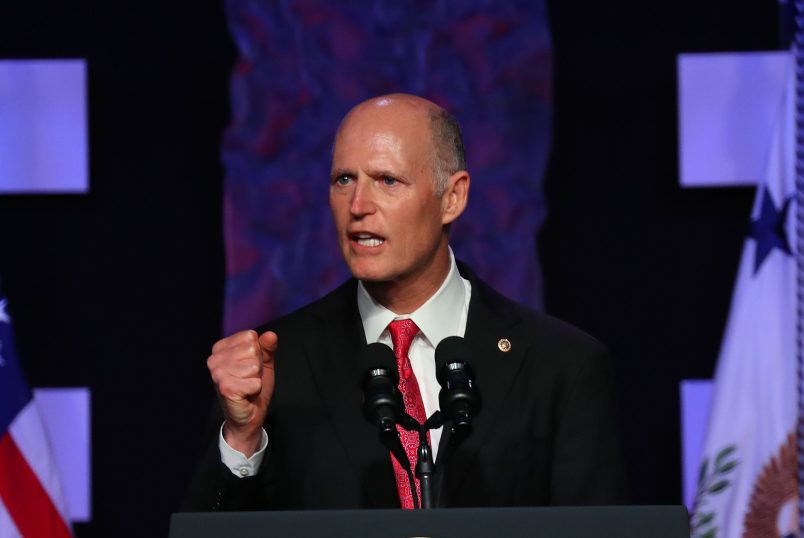Following their historical underperformance in last week’s midterms, Republicans need someone to blame. Some factions of the party are loudly pointing the finger at Donald Trump, his conspiracy theories and his slate of far-right candidates for the red wave that never was. Others in the MAGA crowd, now less sold on the electability of the Big Lie, are aiming their ire at other targets.
Mitch McConnell – a years-long object of Trump’s rage who warned early-on there weren’t enough “acceptable” candidates running for the GOP to secure the Senate – is an easy one.
While Republicans continue to grapple with who exactly is to blame for losing the Senate and securing only a slim majority in the House, that politically unstable environment is fertile ground for lawmakers who are hoping to start an early bid for future national ambitions, manifesting in the form of challenges to Republican leadership.
Yesterday, we saw the conservative, MAGA-infused House Freedom Caucus challenging Kevin McCarthy (R-CA) for speakership, today Sen. Rick Scott (R-FL) launched a doomed bid against long-time Senate Minority Leader Mitch McConnell (R-KY).
In a closed-door GOP luncheon on Tuesday, Scott announced his intention to run against McConnell for leadership, saying he was “not satisfied with the status quo,” according to POLITICO.
Scott did not get the support needed to come anywhere close to beating McConnell — who will likely be the longest serving party leader in Senate history —- but that didn’t stop him from challenging McConnell in the first place. Former President Trump, who just announced his run for the 2024 presidential election, already nudged Scott to oppose McConnell months before Republicans lost the Senate to Democrats. So, this was the chance for Scott to hit two birds with one stone: secure Trump as an ally and make an early bid for his future ambitions.
“I believe it’s time for the Senate Republican Conference to be far more bold and resolute than we have been in the past.” Scott wrote in a three-page “Dear Colleague” letter he released. “We must start saying what we are for, not just what we are against.”
The Florida senator, who currently chairs the National Republican Senatorial Committee, promised that if elected he would “never surprise you with legislation and ask that you vote on something you haven’t had an opportunity to review.”
Scott and McConnell have a tumultuous history and this is not the first time Scott has rebelled against party leadership.
The two have disagreed on many things in just the past year, one of which was the plan Scott put out in February laying out his own policy plans to “rescue America,” ahead of the midterms. McConnell was openly critical of the proposals — which addressed what Republicans should do if they retake the Senate and House — as it went against his strategy to stay away from putting out an agenda to avoid giving Democrats a tangible plan to attack. (It also included some pretty gross proposals aimed at raising taxes on low-income Americans and sunsetting Social Security and Medicare, which McConnell shut down rather forcefully).
In August, the two were at it again after McConnell suggested that the Republicans might not be able to control the Senate after the midterms, saying “candidate quality has a lot to do with the outcome.”
“If you want to talk about the need to raise more money to promote our candidates versus the Democrats’ terrible candidates, I agree,” Scott said in response. “If you want to trash-talk our candidates to help the Democrats, pipe down. That’s not what leaders do. And Republicans need to be leaders that build up the team and do everything they can to get the entire team over the finish line.”
McConnell seemed unfazed ahead of the vote. And based on todays’ voting, 37 votes for McConnell and 10 for Scott, he was right to be confident.
“I have the votes. I will be elected. The only issue is whether it will be sooner or later,” McConnell said. “I don’t own this job. Anybody in the conference that’s serving can challenge me. And I welcome [it].”



